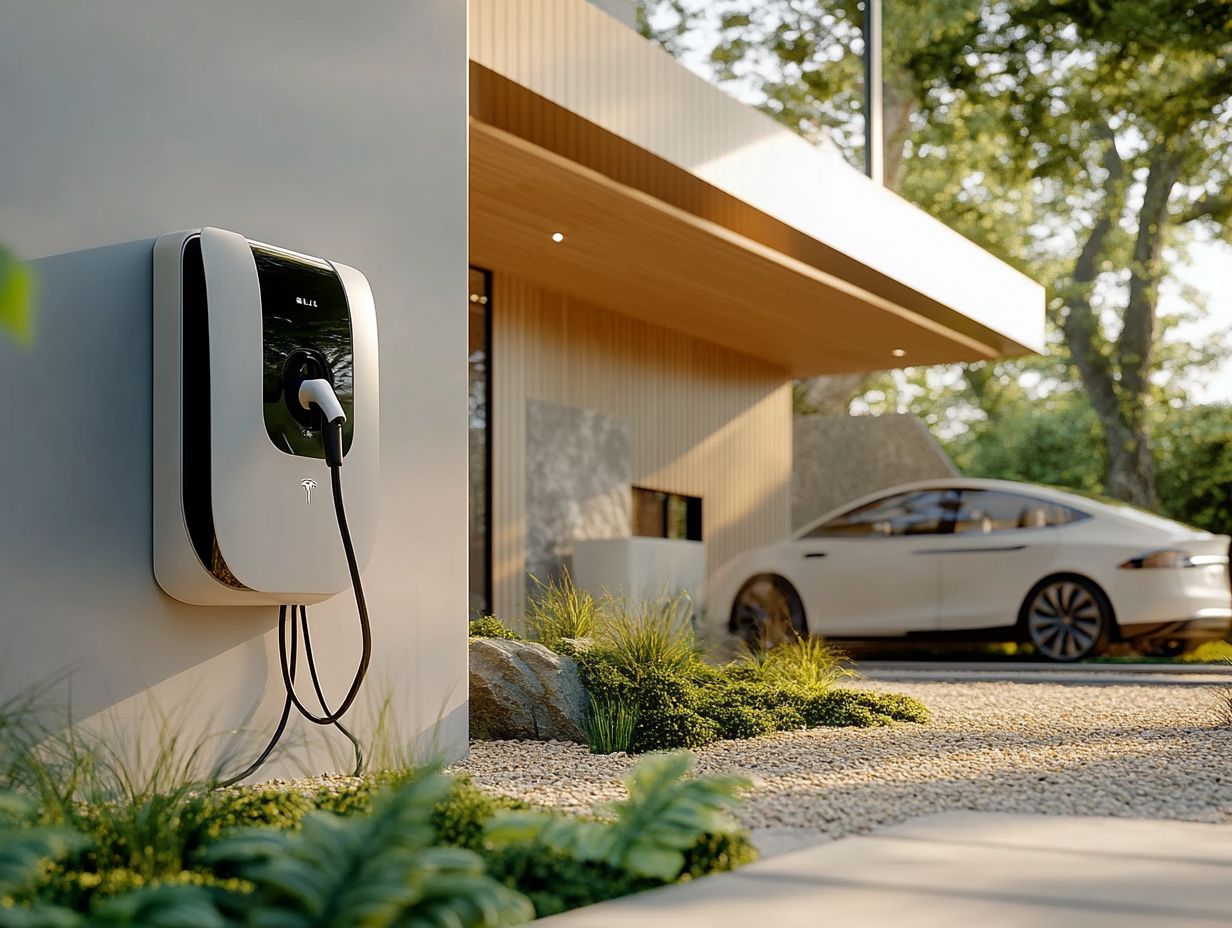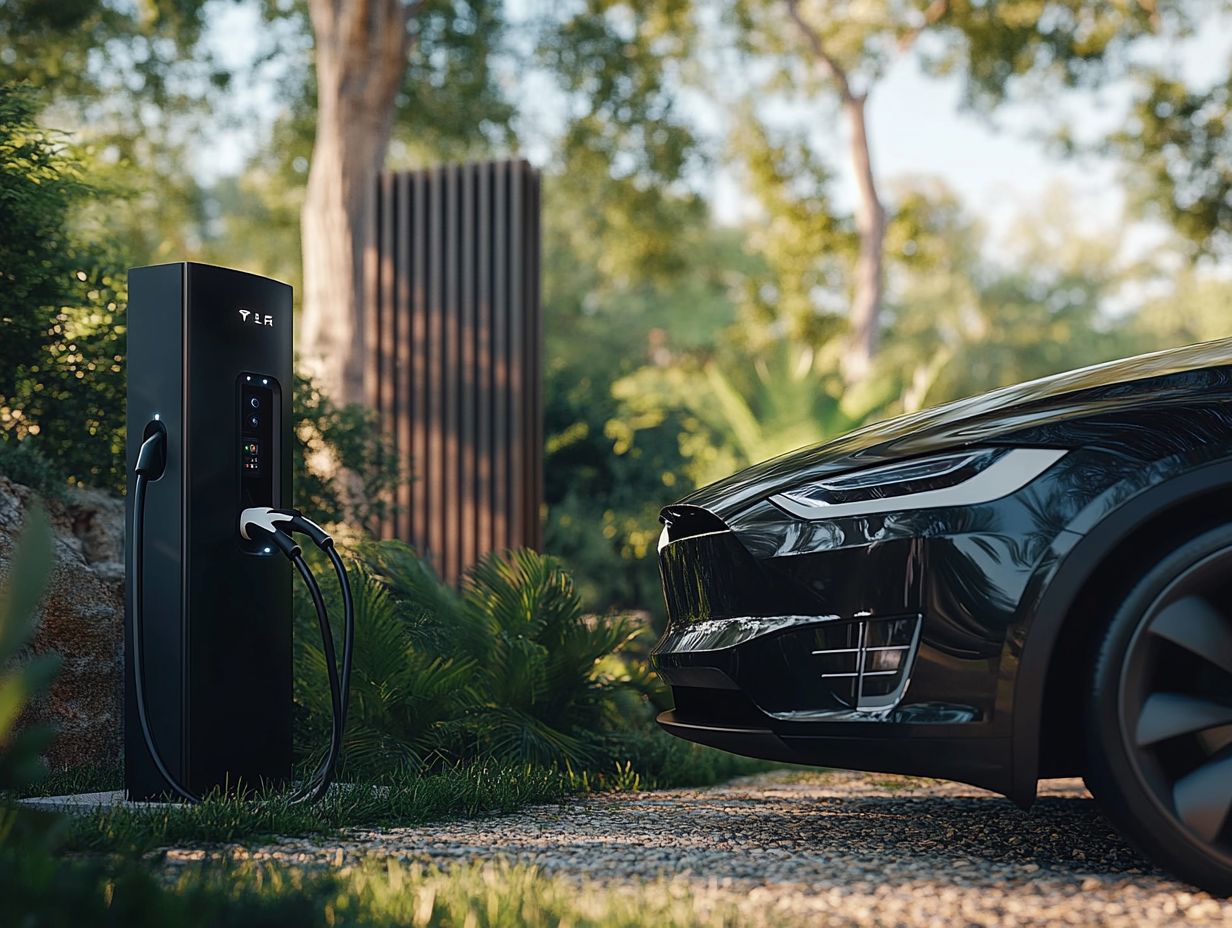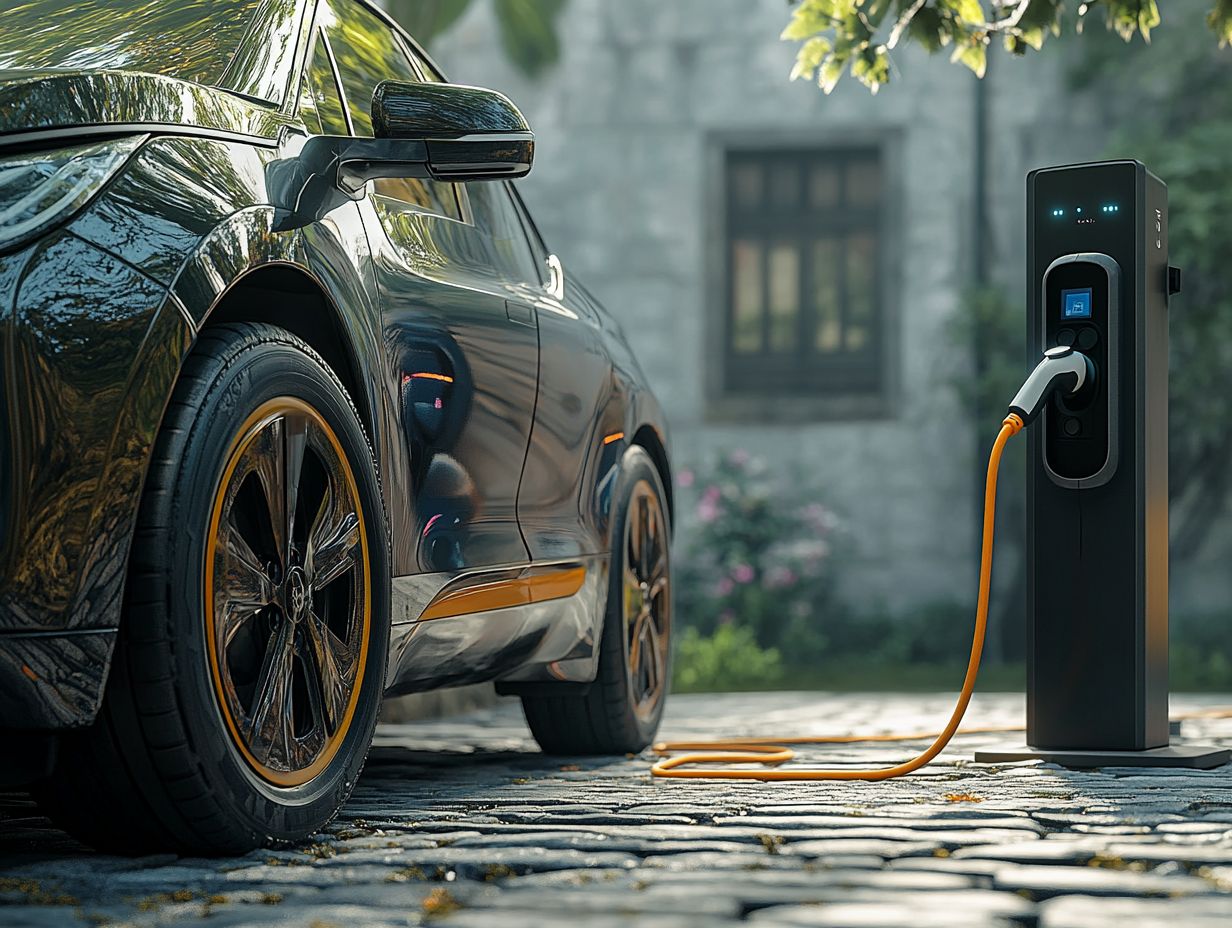Understanding EV Battery Life: What You Need to Know
Understanding the lifecycle of electric vehicle (EV) batteries is crucial for you as an EV owner. This article delves into the various factors that affect battery life, including environmental conditions, driving habits, and maintenance practices.
You ll discover the signs indicating that your battery may be on the decline, along with effective strategies to extend its longevity.
This article also guides you on when and how to replace your battery. Dive in now to maximize the performance and lifespan of your EV!
Contents
Key Takeaways:
- Understand the factors that affect EV battery life, such as environmental conditions, driving habits, and battery maintenance.
- Identify warning signs of a declining EV battery and address them promptly to extend its lifespan.
- Implement effective maintenance strategies to prolong the life of your EV battery and save money in the long run.
What is EV Battery Life?
EV battery life refers to how long the batteries powering electric vehicles (EVs) can deliver energy efficiently before their effectiveness wanes.
Key factors, such as battery chemistry the materials used in the battery that affect its performance whether lithium-ion or nickel-hydride, are pivotal in determining the lifespan of the battery. These factors directly influence both the vehicle’s range and consumer preferences.
Grasping the nuances of EV battery life is vital for maximizing battery health and tackling challenges like degradation over time. This understanding equips you to make informed decisions about charging habits and maintenance, ultimately enhancing your electric driving experience.
Factors Affecting EV Battery Life
Several factors influence the lifespan of your EV batteries, from environmental conditions to your unique driving habits. Each of these elements can substantially impact the performance and longevity of your electric vehicle.
For instance, temperature fluctuations, how often the battery is used and recharged, and diligent battery maintenance are crucial in determining how long your EV battery will serve you before it needs replacement or starts to degrade. Moreover, your preferences as a consumer can shape how these factors are viewed in terms of battery reliability and the overall performance of your vehicle.
Environmental Factors
Environmental factors, particularly temperature, play a pivotal role in the performance and lifespan of electric vehicle batteries. It s essential for you to pay attention to them.
Extreme temperatures change the battery’s chemical reactions, leading to increased resistance and reduced charging capacities. For example, high temperatures can cause overheating, resulting in electrolyte decomposition and ultimately shortening the battery’s life. Conversely, frigid conditions can impede the chemical reactions vital for efficient energy transfer, leading to a noticeable drop in range and extended charging times.
As an EV user, understand the effects of these temperature extremes and take steps to protect your battery’s performance today! Consider parking in shaded areas or utilizing battery management systems to enhance your vehicle s longevity.
Driving Habits

Driving habits affect how long your electric vehicle battery lasts. If you drive aggressively, you consume more energy, shortening your battery life.
On the flip side, balanced driving can extend battery life and improve vehicle performance. This helps you get the most out of your electric vehicle.
Maintaining a steady speed and avoiding sudden stops is key. Regularly checking your tire pressure ensures they are not flat, which helps your battery work more efficiently.
Smoother acceleration and anticipating traffic flow create an energy-saving driving experience. This not only protects your battery but also saves you money in the long run.
Battery Maintenance
Keep your battery well-maintained to get the most out of your EV. This ensures it runs at its best over time.
Using a smart charging system can prevent overheating, which is bad for your battery health. Keeping your battery clean also helps it cool down effectively.
Regular software updates can boost your battery management system s efficiency. By following these practices, you safeguard your investment and help the environment.
Signs of a Declining EV Battery
Spotting the signs of a declining battery is vital for your vehicle s performance. Watch for indicators like a drop in range, longer charging times, and power delivery issues.
Recognizing these signs early lets you tackle battery issues before they become costly problems.
Identifying and Addressing Warning Signs
Being aware of warning signs like reduced range and erratic charging is crucial. These signs indicate battery degradation.
Using battery monitoring systems gives you valuable insights into your battery’s health. This helps in preventing further decline.
Regular maintenance and diagnostic checks empower you to make informed repair decisions. Understanding these signs can prevent unexpected breakdowns and protect your investment in electric vehicle technology.
Extending EV Battery Life

Extending the lifespan of EV batteries is essential for you as an electric vehicle owner. It involves various effective strategies and maintenance practices.
By implementing proper charging techniques and regularly monitoring battery health, you can enhance your battery’s longevity. Making well-informed choices about your vehicle usage will also help.
Embracing these strategies improves your vehicle’s performance and plays a crucial role in reducing fossil fuel emissions. This aligns your driving habits with sustainable practices.
Effective Maintenance Strategies
Implementing effective maintenance strategies is key to ensuring the longevity and efficiency of your EV batteries. These strategies directly influence overall performance.
Key practices include regular battery health monitoring and adhering to proper charging practices. Being mindful of environmental factors that can affect battery performance is also crucial.
For instance, routinely checking the battery’s remaining power level and temperature lets you identify potential issues early. This helps keep wear to a minimum. Following manufacturer recommendations for charging like avoiding extreme fast charging whenever possible reduces stress on the battery cells.
Whenever possible, store your vehicle in moderate temperatures. This helps prevent extreme heat or cold from adversely affecting the battery s chemical processes.
Collectively, these strategies mitigate the risk of battery wear and contribute to a more reliable and sustainable electric driving experience.
Replacing an EV Battery
Replacing an EV battery is crucial for electric vehicle owners. It significantly impacts your vehicle’s operational efficiency and overall ownership costs.
Understanding when and how to replace an EV battery is essential. Consider factors like battery warranties and degradation rates.
While many manufacturers design their battery systems to last, the need for eventual replacement is unavoidable. Planning ahead mitigates costs and ensures proper vehicle maintenance.
When and How to Replace an EV Battery
Knowing when and how to replace your EV battery ensures optimal vehicle performance and your safety. Look out for signs like significant battery wear, a noticeable drop in vehicle range, or inconsistencies in charging these indicate it’s time for a replacement.
Familiarizing yourself with the manufacturer s guidelines for battery replacement empowers you to navigate this process effectively. This allows you to make informed choices about your electric vehicle.
Recognizing these signs early can help you avoid unexpected breakdowns and additional issues. As the battery starts to wear, you might hear unusual sounds, experience overheating, or see frequent error messages on your dashboard all of which require immediate attention.
Consult your vehicle s manual for specific instructions and timelines for checking battery health. Following the manufacturer’s recommendations ensures compliance and aids in selecting quality replacement batteries, significantly impacting your vehicle s overall performance and longevity.
Don’t wait too long to check your battery health; timely action can save you from costly repairs and maintain your driving experience.
Frequently Asked Questions

Here are some common questions about EV battery life.
What is EV battery life and how does it affect my car?
EV battery life refers to how long the battery in an electric vehicle can power the car before needing replacement. It is an important factor when purchasing an EV, as it can affect the overall cost and performance of the vehicle.
To learn more about maintaining your EV battery and ensuring its longevity, consider reaching out to a professional or exploring additional resources.
What factors affect EV battery life?
Several factors affect the life of an EV battery. These include temperature, driving habits, and charging patterns.
Extreme temperatures, frequent fast charging, and aggressive driving can degrade the battery faster.
How long do EV batteries typically last?
The lifespan of an EV battery varies by make and model. Most manufacturers offer warranties ranging from 8 to 10 years or 100,000 to 150,000 miles.
Can I replace an EV battery if it starts to degrade?
Yes, you can replace an EV battery when it loses capacity. Keep in mind, it can be costly and time-consuming.
How can I extend the life of my EV battery?
To extend your EV battery’s life, follow proper charging and driving habits. Avoid frequent fast charging and keep the battery between 20% and 80% charged.
Extreme temperatures can harm the battery. Drive efficiently to reduce strain on it.
Are there any benefits to replacing my EV battery with a new one?
Replacing your EV battery can enhance performance and range. Unlock your vehicle’s potential with a new battery that often comes with a longer warranty and boosts resale value!






